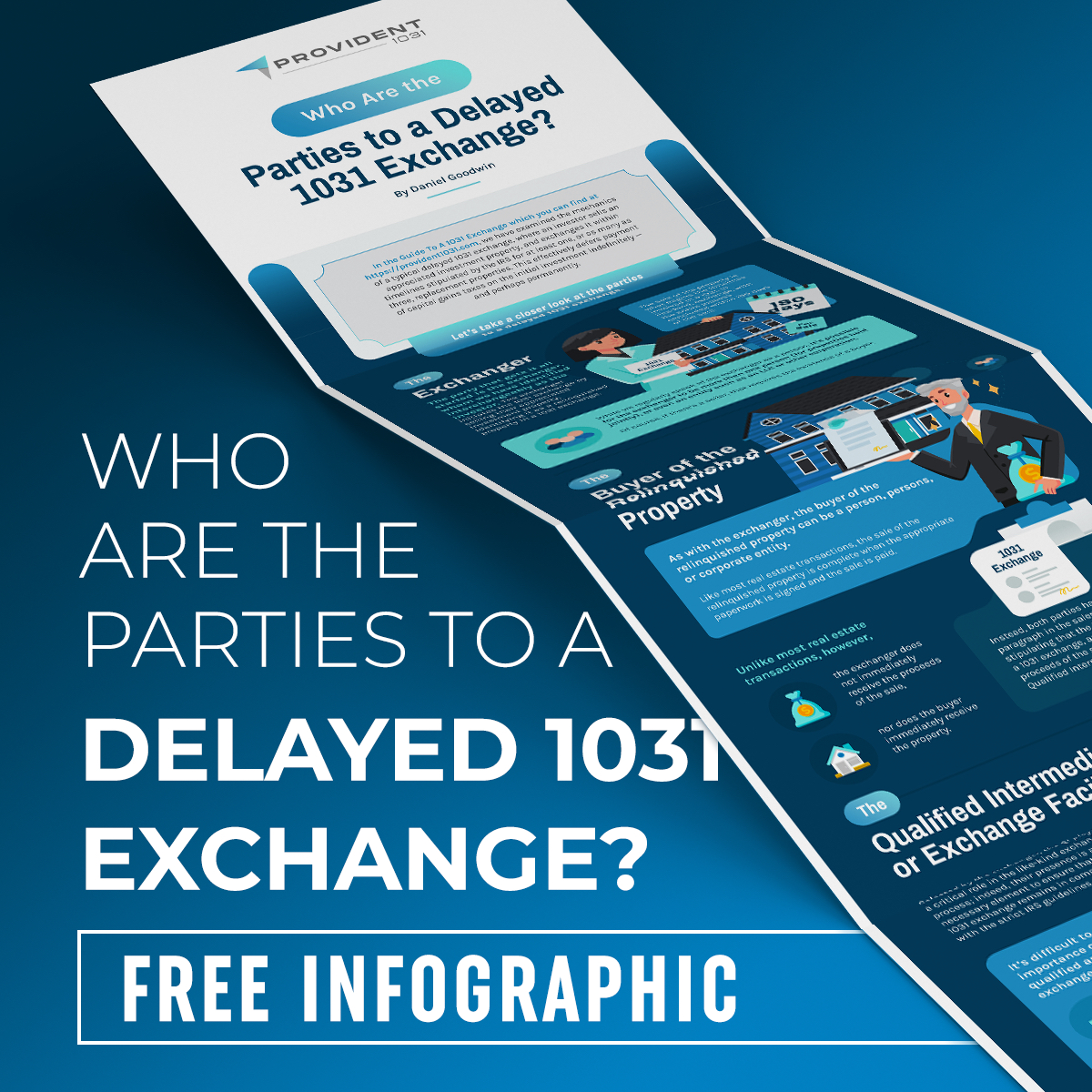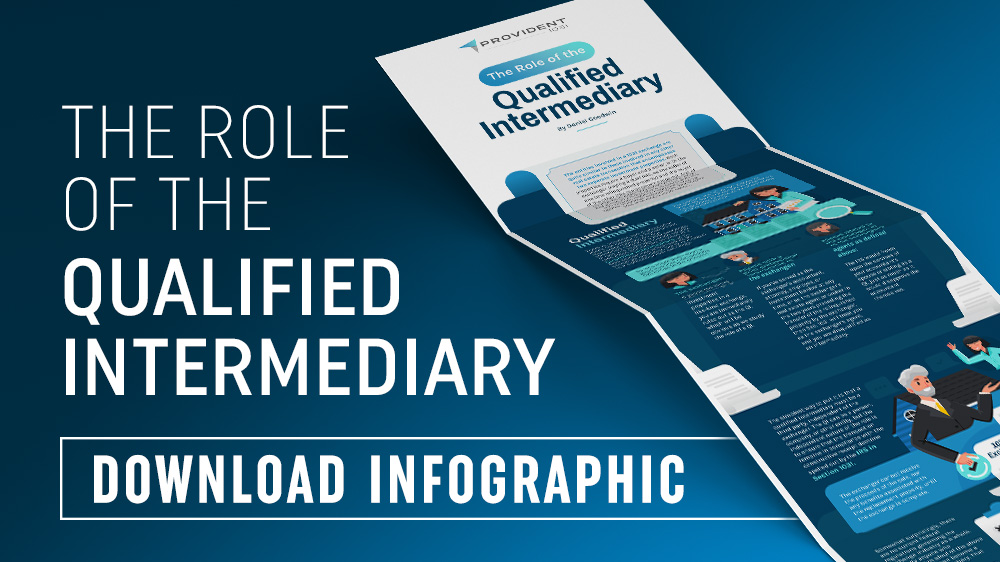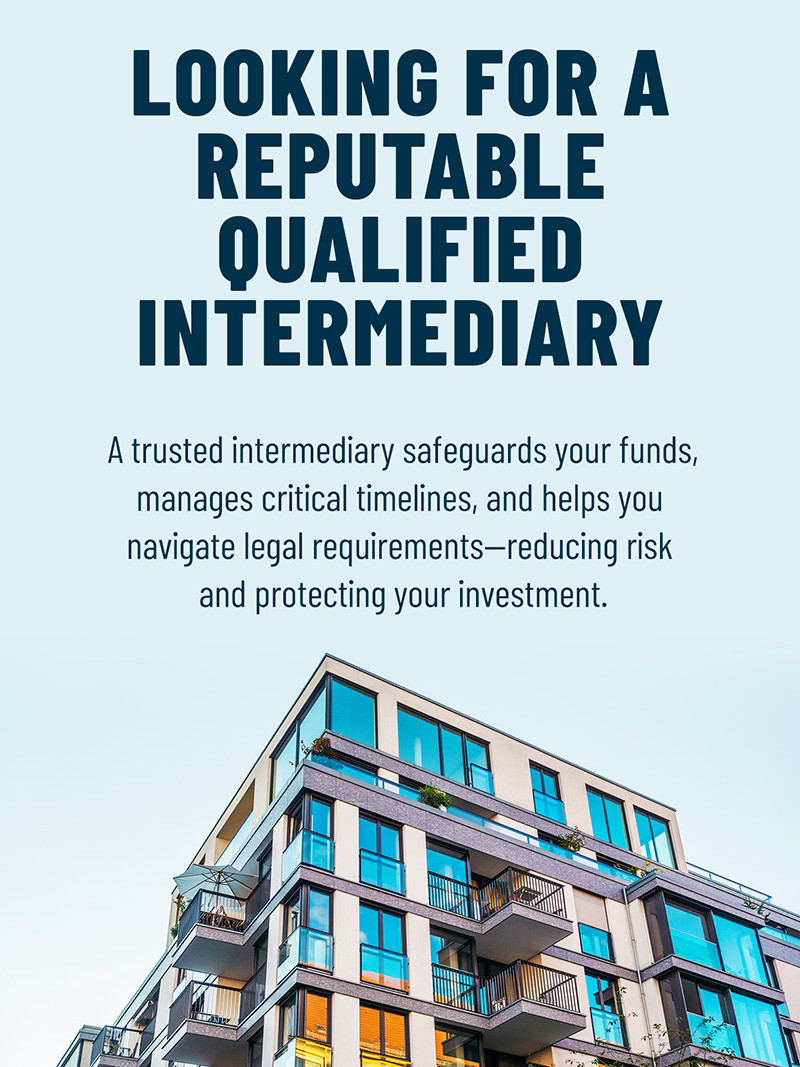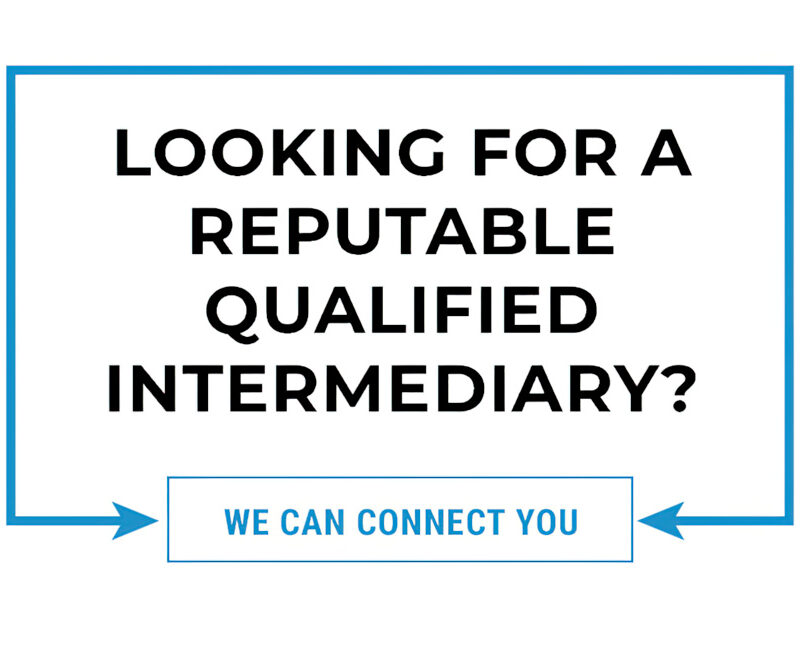How To Not Screw Up A 1031 Tax-Free Exchange
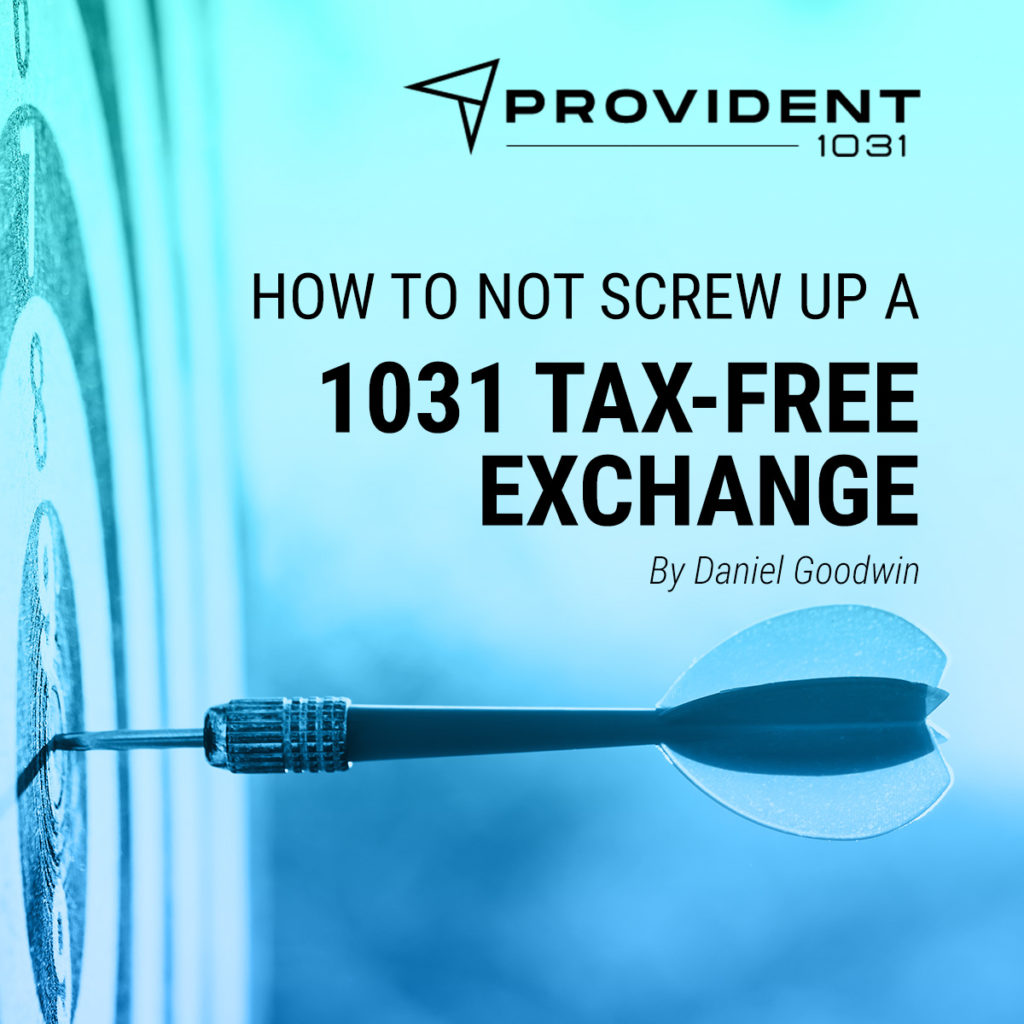
How To Not Screw Up A 1031 Tax-Free Exchange
Without question, real estate is one of the very best ways to create and grow wealth. Various studies show that up to 70% of all millionaires credit real estate as their number one wealth creation tool. Add to real estate the many benefits of tax-favored treatment to real estate investors, and it’s easy to see why real estate is such an essential part of one’s portfolio.
Since the 1920s our tax code has allowed a real estate investor to sell their property, buy another property, and shelter all capital gains via a 1031 exchange. I will not go into all the benefits, rules, and procedures here, but I highly recommend you watch my trailer video below about my 1031 Exchange Masterclass.
There are three significant ways that the IRS can disallow your exchange and the capital gains on the sale of your property to be 100% taxable.
Let me assure you here: when we see investors run afoul of the tax rules, they almost invariably believe there is something they can do to correct their mistake.
They can’t.
The IRS rules are hard and fast, and they all apply without exception, regardless of whether the investor understands them or not.
Real estate investors are often entrepreneurs who are Type A personalities and are used to being able to figure things out as they go but let me assure you here; if you screw any of these three things up, you will not be able to fix it, and the toothpaste is not going back in the tube. There are no do-overs, and the price of learning the hard way can be high, so an investor would be well served to learn the rules of the road, as they say, before attempting a 1031 exchange.
Here they are.
3 Ways the IRS Can Disallow Your 1031 Exchange and The Capital Gains on the Sale of Your Property
1. Try a DIY – Do It Yourself
These days most things you can learn how to do on your own by watching a simple YouTube video. I knew an investor who closed on an apartment complex and took possession of $800,000 dollars and then called me to inquire about a Delaware Statutory Trust (DST).
He informed me that he had not contacted a Qualified Intermediary (QI), but that he knew about 1031 exchanges and figured he would be able to save the tax because his brother was a CPA and his roommate from college was an attorney.
He went on to tell me that he did not like paying people to do things that he could do himself and that his brother and CPA could help him if he needed any guidance.
He told me how he had bought the apartment complex and had taught himself everything about how to be a real estate investor.
I asked him if he understood the role of the Qualified Intermediary in the IRS code 1031 and he wasn’t sure but that he would figure it out. I had to inform him that there is no DIY (do-it-yourself) in any of this and the IRS will not allow a 1031 tax-free exchange without a 3rd party Qualified Intermediary or Exchange Accommodator to facilitate the exchange.
As smart and ambitious as this investor was, his lack of knowledge in this important area proved to be a mistake that cost him about $100,000 dollars of unnecessary tax.
A do-it-yourselfer who would like to verify this can learn more about this here.
2. Take Possession of Funds
Under no circumstances can you take possession of funds from your real estate closing if you have any intention whatsoever of taking advantage of the tax benefits of a 1031 exchange.
You may have contacted a QI (Qualified Intermediary), and you may have identified a property that qualifies for a 1031 “Like Kind” exchange. Still, if you somehow close and take possession of your sale proceeds, then your prospects of a 1031 exchange are “game over”.
Do not depend on your real estate agent, CPA, or your title company to sort this all out for you. Most real estate agents and title companies do not work with 1031 exchanges on a day-to-day basis. The rules are hard and fast and cannot be adjusted or amended in any way for any learning curve you might be on.
A good QI will not let you make this mistake. However, QIs DO work with 1031 exchanges on a day-to-day basis, and they will not allow you to run afoul and make a mistake that could cost you hundreds of thousands of dollars.
QI fees are minimal and are well earned, in my opinion. A QI will work with the investor, the agents, the title company, and the advisor if a DST is being used as the replacement property.
Investors can learn more about DSTs at www.Provident1031.com.
3. Miss your 45 or 180 Day Deadlines
1031 Exchanges come with strict 45-day deadlines to identify “like kind” replacement properties and 180-day deadlines to close on such.
There are essential rules on the identification process.
You have 45 days from your closing to identify the replacement property, and if there is more than one property in your exchange, the 45 days begin from the date of the first closing.
Pay close attention to the three (3) Property Rule, the 200% Rule, and the 95% rule. A complete explanation of those rules can be found in the Master the 1031 Exchange with Daniel Goodwin masterclass.
IRS section 1031 also states that an investor has 180 days to complete the acquisition of the replacement property. However, you must have properly identified any such replacement property in the 45-day identification window.
Many investors have a team in place to assist with such technicalities, and such a team usually consists of a Qualified Intermediary, a title company, a CPA, and real estate agents, and/or Advisors who represent DSTs when being used as replacement property.
Rely on your team but think of your QI as the quarterback. The QI calls the play, and the QIs role is to ensure your compliance with the complicated IRS rules on 1031 exchanges.
My experience with QIs has been nothing less than stellar because, as a firm, we decided to work with only the best QIs who perform their duties as their full-time occupation. Therefore, we work with QIs owned by large national title companies like Fidelity Title or Chicago Title.
Beware of attorneys who offer QI services as a “sidebar.” Trust me; you do not want an attorney doing this for you if they also do traffic tickets, divorce, adoption, or any of the other things that attorneys sometimes do. Work with a professional.
If you need help connecting with a Qualified Intermediary (QI), contact us at 281-466-4843. Our team can connect you with a QI who can look at the details and keep your 1031 exchange on the right track.
